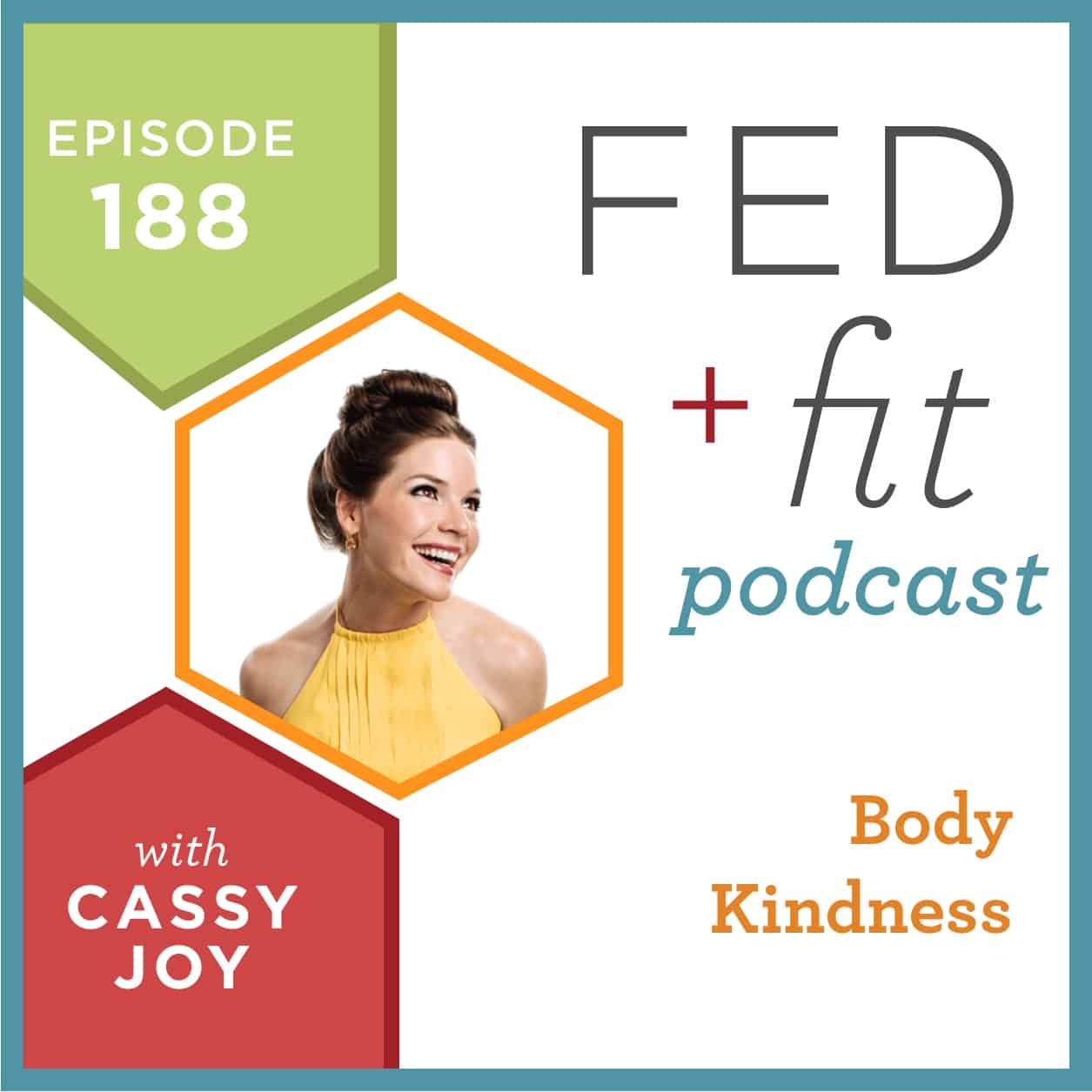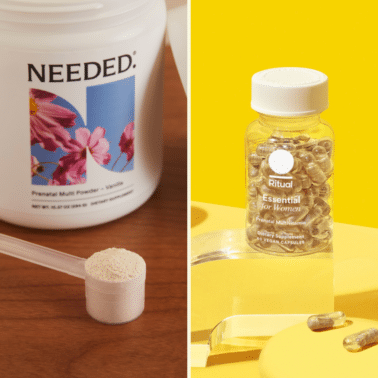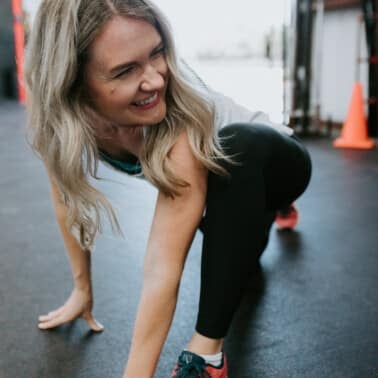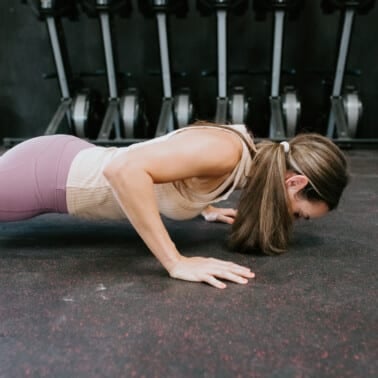On today’s episode, I’m chatting with Rebecca Scritchfield, RDN, EPC all about the ideas of body kindness, ditching diets, and finding a sweet spot where nutrition, taste, and pleasure are combined to create a sustainable way of living and relating to your body. This episode is such a wealth of knowledge and I can’t wait to share it!

We’re back with our 188th episode of the Fed+Fit Podcast! Remember to check back every Monday for a new episode and be sure to subscribe on iTunes!
Find us HERE on iTunes and be sure to “subscribe.”
[powerpress]
Episode 188 Links:
Find Rebecca’s blog HERE.
Find Rebecca on Instagram HERE.
Grab your own copy of Body Kindness HERE.
Episode 188 Sponsors and Featured Partners
- Capilano Beeotic – 100% Australian Honey with natural prebiotics to support gut health, Click HERE to get your own!
- Pride of Bristol Bay – Sustainable, hiqh-quality, nutritious, and wild-caught Alaskan Sockeye Salmon delivered right to your door! Use the code “fedandfit” to get $40 off your first order!
Episode 188 transcription
Cassy Joy: Today’s show is brought to you by Capilano Beeotic Honey! Beeotic Honey is 100% pure Australian honey that contains naturally occurring prebiotics. It’s my favorite sweeteners for tea, a key ingredient in my jalapeno lime margaritas, my secret to chewier cookies, and it’s perfect for dressings or for drizzling over my morning yogurt. Best of all, Beeotic helps support gut and digestive health with 340 mg of naturally occurring prebiotic oligosaccharides per serving. These prebiotics help nourish good gut bacteria, which is even more important for keeping us healthy during the winter months. You can grab your own Beeotic Honey at Walmart and Walmart.com starting at $9.98.
Cassy Joy: Welcome back to another episode of the Fed and Fit podcast. I am your host; oh, and happy New Year! {laughs} So exciting. I am your host, and back with a really fabulous guest interview. We wanted to kick the year off really well. Set the tone. We have invited Rebecca Scritchfield; did I say your name right, Rebecca? Normally I ask before I record.
Rebecca Scritchfield: That’s great! You did it perfectly.
Cassy Joy: {laughs} We’re going to roll with it.
Rebecca Scritchfield: {laughs}
Cassy Joy: I told her. I was like; I just like; it’s an informal show. So we’re going to follow through on that. So let me tell you a little bit about her. I really love this bio. She says; what if you accepted yourself just as you are, and treated your body with kindness? Rebecca Scritchfield is an award-winning health at every size dietician and exercise physiologist. She is the author of the book; Body Kindness. Transform your health from the inside out and never say diet again. Amen sister! And she’s the host of the Body Kindness Podcast. She has a free anti-diet get started course at bodykindnessbook.com/start. And she provides private counseling, virtual support groups, workshops, e-courses, and more. You can follow her on Instagram at Rebecca Scritchfield.
So welcome to the show Rebecca! I’m so excited to chat today.
Rebecca Scritchfield: Thanks for having me.
Cassy Joy: Oh my goodness, thank you for coming on. I’m sitting in our guest room in San Angelo, Texas. We’re visiting family. And I just; it’s so funny being around a bunch of folks. I mean, everyone you can feel that they’re on the cusp; they’re like; should I do a diet? It’s 2019. Rebecca and I are talking on January 1st. So a lot of this New Year energy going on right now. And it’s just so interesting what this time of year, the commercials we see, and the things that we consume on social media. There’s just so much out there. Anyway, I’m excited to chat.
Could you tell us a little bit more about your story? How you got to where you are, and why you are passionate about this important mission?
Rebecca Scritchfield: Sure. Thank you. Yeah, I’m all about the New Year, same me philosophy. {laughs} Literally, nothing changed between 11:59 and 12:00. And I think that is a lot of the essence; I didn’t always used to be that way. But now I’m at this place where I always start with self-compassion. I’m good and worthy just for being who I am today. That is enough. And actually from that place of acceptance is what can actually help you create more meaningful change in your life.
But like many people, I was previously a chronic dieter, so I started my first diet around 9. Most kids start by age 10 anyway, so I guess I was ahead of the curve! {laughs}
Liz Wolfe: Seriously? I didn’t know it was so young.
Rebecca Scritchfield: Yeah, it’s really sad. Yep. And by 15, about 80% of 15-year-olds report that they hate their body. There’s a part that is sort of developmentally appropriate; you become hyperaware. Like; oh my god, I got a wedgie! It’s the end of the world, right? There’s that sort of teen awkward phase. But it’s not just that. It’s everything. It’s how we’re judged, as good or bad is based on how thin we are and how perfect our hair is. How blonde are we? What’s the tone of our skin? The lighter the better. There’s all these ways we judge people on their health and their worthiness.
So, I started dieting with a friend who had this idea that we should weigh less. I was like; sure. I really wanted to be her friend. And thing that’s interesting about my experience is there were a lot of starts and stops. Ok, so we stop doing that. And I’d read the health and fitness magazines. That taught me; oh, you should cut your calories. Only eat this much. Your legs should look like this. And so it was always about striving and achieving. And it was called health.
So I cared very much about my health. But the message I was given was that it was about looking a certain way or striving to look that way. And long story short, like most people, I dealt with this off and on. And one of the really twisted things that happened to me is that people would often congratulate me for my discipline. I never really lost that much weight in dieting and being restrictive. There were times I would be really restrictive. And that’s just not how my body responded. But I was muscular, so people would say; oh you’re so disciplined and all this stuff.
And I’m thinking; if you knew how little I was eating. Or how much I was exercising. Or how mean I was in my mind, you would not be praising this. But also as a teen, it’s like; I can’t stop this because this is how I’m getting praise and worthiness.
Even when I became a dietician; so I’m a dietician and certified exercise physiologist. Even in practicing in the field, I was still pushing weight loss as the thing to do for health. And when I was finding was that first of all, I was miserable. My clients were miserable. And I’m like; I’m not really helping people. And through a number of things that went on between clients; even with my own mom. Which I talk about in my book. I kind of share the story of how everything unfolded there.
But it was like; basically this rock bottom moment. This is not health, and I don’t know what to do to help people without it being about weight loss. But I’ve got to figure this out. Body kindness is a philosophy that I came up with. It’s really grounded in positive psychology and motivational interviewing. It’s deeply rooted in health at every size; which is helping people pursue health in personally meaningful ways, without pursuing weight loss.
And essentially, it’s like my take on answering the question of; what can I do if I care about my health, and frankly you probably still have a concern about your weight. Whether you want to lose weight or you don’t want to gain weight doing body kindness. That makes sense, right? There’s a cultural reason why. But what do I do if I don’t diet? If it’s not going to be keto? If it’s not going to be Whole30? If it’s not going to be Weight Watchers, or now WW. What am I going to do if it’s not diet? And Body Kindness helps to answer that question.
And my hope is that it also helps people to see that there’s a lot more to life than just working on yourself. So the way the book unfolds, there are gentle reminders about having fun and engaging in volunteering, and how that helps create a better life. My hope is people work through it. They fill up their free time that used to be filled up with over-exercise and tons of work on yourself where you actually fill it with things like relationships and socializing and other things that matter to you. Hobbies. {laughs} Other things that actually create happiness in value and worth to your life outside of this “project” that your body is supposed to be every day for the rest of your life.
Cassy Joy: Mm-hmm. I hear you. This is so interesting. What would you say are some of the biggest challenges your clients face when trying to transition out of this addiction to diets into a place of body kindness?
Rebecca Scritchfield: Sure. Well, I mean, I always let people know. Because they feel like in order to even begin with Body Kindness, they have to be willing to say; I definitely don’t want to lose weight. So I’ll be honest. Still people who come in; they come in with a weight concern. Some will flat out sit down and be like; I’ve got to do something about this weight. And they’ll be like; I know that you don’t focus on diets.
So, I don’t want you to feel like you have to achieve something before even starting in body kindness. Because as a foundation, it really starts with self-compassion and self-acceptance. So literally, if you can put your hands on your heart and say; it’s ok to be here right now and I want to be good to you. I want to be good to you no matter what. I’m here. That is the beginning of Body Kindness. It’s a form of connection and acceptance and compassion towards yourself. Because we don’t take care of things that we don’t like or that we fight or that we hate. So we kind of start there with a basis of truce.
I do feel like clients come in feeling that they want that. They’re like, I can’t stand another chicken and broccoli, boiled, tasteless thing again. They desperately don’t want to do the diet. But one of the toughest things; it’s less about letting go of that and more about feeling like what they’re doing to free themselves from dieting is enough. And trusting that it’s going to enhance their wellbeing.
Because as much as we can work on their individual mindset and choice patterns, so that it’s flexible body kindness as opposed to rigid control, we can’t change the culture just me and the client. Right? So that client has to leave, go out into a culture where everybody is praising the Whole30. Where everybody is praising keto. Where everybody is praising weight loss as the sign that the person’s life is improving.
So to go out in that world where the dominant thing is to attach worthiness to weight and to go out resisting that, it takes extra armor and it takes extra emotional labor out of you. And it’s very tough. We get social rewards and social power out of pursuing or maintaining fitness. That’s not a problem with us as individuals, it’s a problem with culture. And it needs to change. It’s just a long thing to change. So we’ve got to figure out how to be good to ourselves while we call out the BLOOD SUGAR that exists.
Cassy Joy: Mm-hmm.
Cassy Joy: Today’s show is brought to you by Pride of Bristol Bay! Where you can get truly sustainable, high quality, nutritious Alaskan sockeye salmon delivered right to your door. Pride of Bristol Bay’s wild salmon is sustainably harvested in the pristine waters of Bristol Bay, Alaska. Their focused team of fishermen are committed to the highest quality in handling standards at the point of harvest, creating the unsurpassed quality and flavor you’ll find in every one of their wild sockeye fillets and portions.
Each case of their wild salmon is labeled with the name of Bristol Bay fishing district in which the salmon was harvested. It’s the ultimate in traceability. Boxes of supremely fresh frozen fillets and portions are of the highest quality salmon, and they’re delivered to your door, skin on, and already deboned. It’s incredible. It’s hands down the best salmon I’ve ever enjoyed.
You can learn more about Pride of Bristol Bay and support their important work by ordering your first box of frozen salmon, visiting their website over at PrideofBristolBay.com. Make sure you submit the discount code, fedandfit, all one word, lowercase, at checkout for $40 off.
Cassy Joy: I would love to know. Do you have a client transformation or story that is a favorite of yours, when you think back?
Rebecca Scritchfield: Mmm. You know, I could come up with several different ideas, just kind of depending on which road we wanted to go down. I have had clients who have got healing from their eating disorder. I’ve had clients who were someone who was a competitive gymnast. Just kind of unraveled from that world. Overcame an eating disorder as a result of being able to work with body kindness. I’ve had people who have sent me an email; “I had my first orgasm. Thank you!” {laughs}
Cassy Joy: {laughs}
Rebecca Scritchfield: So that’s always interesting. I’m a big fan of sexual pleasure. Be it by yourself or with a partner. And they find it surprising sometimes that we even talk about it. But definitely allowing your body to receive pleasure is very much an important part of practicing body kindness.
And honestly, just people telling me, I’m a happier person. So, I’m a better mom and a better partner because I’m able to be present in my life in other, more meaningful ways. And some people think; oh, I’ve got a diabetes diagnosis and my doctors tell me to lose weight. And I have to eat this way because of the diabetes and so I can’t do body kindness. And even that is not necessarily true. Your doctor is going to say to lose weight because of weight bias. That’s the rule.
You tell someone to lose weight at the doctor’s office, the doctor gets paid for telling you to lose weight. That is also not your problem. Right? A doctor wouldn’t tell a thin person to lose weight. He’s day; make some changes to your eating and exercise, and we will watch and follow this diabetes.
But even somebody with a medical nutrition concern can practice body kindness and integrate it into your life. Because it’s really about having a totally different way of living, thinking, and being in the world. Where you live your values, and it just might be that you have a medical diagnosis of something that matters to you. So you are making changes to your patterns based off of the diagnosis.
We would just, in my approach, we would reject the sort of weight loss criteria. Because it’s actually not why, at least supported in the research, that people have to lose a certain amount of weight to get a certain amount of benefit from diabetes. You can make changes that we know make a difference. Some people will lose weight, some won’t. So because of the variability, when people say; oh, it’s the weight loss. That is not scientifically true. That is just somebody experiencing weight bias.
Cassy Joy: Mm-hmm. That makes a lot of sense. Now, I’m curious. Especially at this time of year when you’re confronted, and all of your clients and audience are confronted with all of the advertisements and all of the different diet options that are out there. Do you cringe at all of them, or do you believe that there might be a time and place and personality that a diet could work for? Do you believe that your approach is really the way to go? Or are there other options out there for different types of folks?
Rebecca Scritchfield: So, I appreciate this question. Ultimately what I say in Body Kindness is that nobody can tell you what body kindness is or isn’t. But I’m not going to say; hey, go ahead and join Weight Watchers; and do Body Kindness at the same time. Right? Because I believe that they’re incongruent. Because if it’s promising weight loss as an outcome, it’s asking you to control your body through some type of an external rule. Where as body kindness asks you to give up control of your body and just understand that where your weight ends up is a result of genetics, plus where you’re at in your stage of life aging wise, plus your personal preferences and interests, plus access to resources. Right?
So you might have somebody who had been chronically dieting, who could keep on the lower end of their defended weight range. But when they stay on that low end, they have to workout 6 or 7 days a week. And they have to be very limited on how often they go out to eat and what they order. It just doesn’t really sound like a good life, right? But when they take a week off from exercise, or take a few rest days, or if they go out more often and they decide to eat fries. And then they jump on the scale and they see a change.
That is somebody who is really trying hard to keep their body in a place; like an artificially low number where they can’t flexible and learn that sometimes you say yes to going out and sometimes you say no. Sometimes you get fries and sometimes you get salad. There’s a flexibility because you make choices that fit for you.
The most people who; some might say, yeah. I love doing Whole30. Right? I can’t sit there and say, you’re absolutely wrong and you suck because you believe it about Whole30. It’s your body. And I 100% believe in body autonomy. Which includes a person’s right to follow any diet they want. Because I can’t advocate for body sovereignty for myself, for higher weight folks, and say; but you doing that diet, you don’t have it. We all need body sovereignty.
So in that case, if you really believe that in the long term that diet is good for you; I’m just, that’s where you are. And that is great. And that is what body kindness looks like to you. I think there are still parts of body kindness that still would be really, really helpful. But who I think it’s going to mostly speak to are people who find the external rules and rigidity of diets to be unhelpful. And they’re wanting to kind of cultivate this inner caregiver voice. And quiet that critic that has these strong judgements and rules that always must be followed.
Cassy Joy: Yeah. That makes perfect sense. And actually, Fed and Fit listeners right now are all nodding their head. Because this is something we’ve talked about for going on four years of this podcast; essentially, breaking the diet cycle. Just how to shift perspective and all. So I love it. It’s a really wonderful conversation. And I think that’s an interesting one to ask folks that are in our separate vein of the wellness industry. In individualizing health. So I really appreciate your answer.
I would love to know a little bit more; you’ve touched on it several times. Tell us a little bit more about your health at every size concept.
Rebecca Scritchfield: Sure. Health at every size is a social justice movement. I did not create it. It actually started years ago, even before the 70s. People were talking about the health at every size. Essentially what it’s trying to do from a social justice standpoint is say that every human being has the right to pursue health, and personally meaningful ways.
So it’s not saying that everyone is healthy at every size. And that’s what a lot of times people think. In fact, health at every size acknowledges that what the science shows is that people who are at extreme of the high weight ranges and extreme of the low weight ranges are shown to scientifically have higher risks for health related complications. So on both extremes of the spectrum.
But what it shows is that there is a variety of weights where people can have good health, and can also, no matter what our weight is, pursue health in a meaningful way without weight loss being the outcome that says; this is what’s good for you. There is actually science that shows that pursuing weight loss leads to weight cycling, and weight cycling can be harmful for lab values.
So anyway. It’s a really important social justice movement that really seeks to change the culture for people to be more inclusive. So for example, thinking about how we use the word fat in our culture. It is a way to shame somebody. It is a way to hurt somebody. Whereas there are people who would like to see fat being used as more of a description. So the way you might say someone is tall, or short, or red-head, or blonde. Where fat could be a description, because higher weight people would find liberation in that. For it to not be a reason to judge somebody.
And then Body Kindness embraces by working with an individual, saying we can be weight inclusive here. And not use weight as a goal or a marker. We can improve our health and our happiness by looking at three key things. And the pillars are number one; make choices from a place of love. Thinking of all the different ways where if we thought about love, what choice would we make. And know that’s not “never eat the fries again.” Right? I call that a dead person’s goal. Because only dead people can actually do that.
But it could be; I’m going to go to bed on time, even though I want to stay up and watch TV because I know I need sleep. That’s just one example. Two would be connect to your body. And it’s where your body tells you that it’s hungry and it also tells you when it’s kind of feeling full. We don’t really take the time to eat mindful meals, so we just kind of shovel. Or kind of go too long without eating, and then boom! Take in a lot of food at once.
So food could be one example where you might say, let’s connect to our body and I’m going to sit down and I’m going to taste this breakfast. I’m going to savor this breakfast. And I’m going to enjoy this breakfast. And I’d want someone to do that, whether they are kind of in a rush and just grabbing a bagel on the go with their coffee, or whether they’re enjoying a nice, slow, Sunday breakfast. There might be differences in how much time you take to have the meal, or differences in how deep you can go to savor mindfulness. But we all can kind of do a little bit more to be present in our lives and connecting to our bodies. Like the need to eat, or stop eating. Or needing movement or sleep or things like that.
The last pillar is care. And that’s about being fully committed to taking good care of yourself. No matter what. And it’s this idea that we can all find an inner caregiver, and just; we’re not perfect and it’s not about being perfect. We will get sick and not exercise. We will have rest days. We will eat lasagna. We will do all these. And rather than giving ourselves a pass and fail; is that we look at the long game of our self-care habits. That even if we feel like we’re making mistakes, for whatever reason, we got stressed in life and we drank too much alcohol as a way to escape or soothe or we’re engaging in emotional eating that is really bothering us.
No matter what, it’s ok to struggle. Nobody gets a pain free life. But we can always be committed to our wellbeing, and say; what can I do for you right now. What is it that you need right now?
Cassy Joy: I love that. That’s really lovely.
Rebecca Scritchfield: Thank you.
Cassy Joy: Yeah, thank you. Man. What good wonderful and worthy work you do, Rebecca. That’s really exciting. And I’m thrilled that you’re out there connecting with people on all of these points. Can you tell us a little bit more about where listeners can learn more about you, and find your programs?
Rebecca Scritchfield: Absolutely. Go to bodykindnessbook.com. There you will find my social media links and everything like that. And there on the homepage there’s a button there that says “get started.” The other URL that works for that is bodykindnessbook.com/start. And that will take you right to the free programs that I have. So I definitely recommend checking those out. They’re basically email and video based programs that help you get started right away. Certainly the book is on audio book and eBook and in print. And so I highly recommend you check that out too. If you do one of the free e-courses, then we’ll be able to stay in touch on all the other things I offer, too.
Cassy Joy: Wonderful. Man, that’s so great. Thank you again for coming on the show today.
Rebecca Scritchfield: Thank you for having me!
Cassy Joy: Oh my goodness! It was such a pleasure. As always, we will link to all of her wonderful work in the show notes over at www.FedandFit.com. Rebecca, thank you so much. Wishing you a very, very happy New Year, and much success connecting with as many folks as possible on such a really wonderful topic.
Rebecca Scritchfield: Happy New Year to you, too.
Cassy Joy: Thank you so much. As always, we’ll be back again next week.











